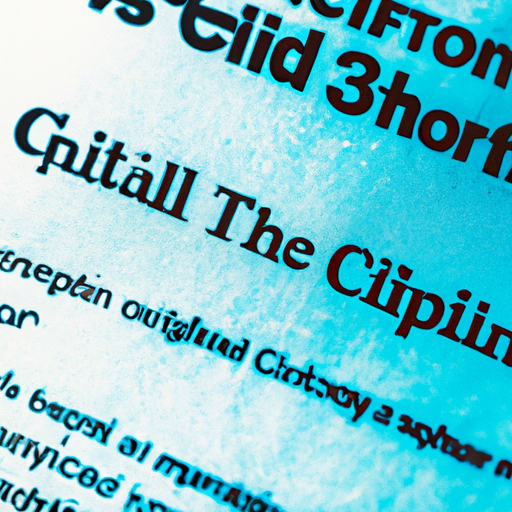In a recent development, Citi, one of the leading global banking giants, has been fined a staggering $25.9 million over alleged discrimination practices. The fine comes as a result of an investigation conducted by the U.S. Department of Housing and Urban Development (HUD), which reveals discriminatory conduct against minority mortgage borrowers.
The alleged discriminatory practices include disproportionately higher interest rates and fees for African American and Hispanic borrowers compared to similarly qualified white borrowers. HUD’s investigation found that these discriminatory policies span from 2009 to 2017.
While Citi denies the allegations of discrimination, this significant penalty highlights the growing scrutiny financial institutions face regarding their treatment of marginalized communities. The fine serves as a reminder that discriminatory practices in lending initiatives won’t be tolerated.
By imposing this substantial fine, the HUD signals its commitment towards addressing systemic discrimination and increasing access to fair lending opportunities. It underscores the importance of equal treatment and fair access to credit for all Americans, regardless of their race or ethnicity.
Impact on affected borrowers
The gravity of discriminatory lending practices cannot be understated. Such practices perpetuate and widen existing economic disparities among marginalized communities. Minority borrowers who faced these discriminatory practices often ended up paying thousands of dollars more in interest and fees solely based on their race or ethnicity.
Discrimination in lending affects the overall financial well-being of individuals and communities. It can hinder wealth accumulation, limit access to affordable housing, and indirectly contribute to broader social inequalities.
Citi’s response
Despite vehemently denying the allegations, Citi has pledged to fully cooperate with the HUD. The bank asserts that it has strict policies in place to prevent discrimination and will review and enhance them, if necessary, to ensure fairer lending practices going forward.
Several civil rights organizations have applauded the HUD’s decision to impose such a substantial penalty on Citi. They emphasize the need for financial institutions to proactively combat discrimination and prioritize social justice in their operations.
The way forward
Addressing systemic discrimination in the lending industry must be a collective effort involving proactive measures from both the governmental regulatory bodies and financial institutions. Increased transparency, rigorous oversight, and stricter enforcement of anti-discrimination laws are essential steps toward preventing such egregious practices.
Furthermore, initiatives promoting financial education, equal access to credit, and unbiased lending decisions should be encouraged to bridge the wealth gap and ensure equal opportunities for marginalized communities.
Ultimately, fighting against discrimination in lending requires continuous efforts to rectify past injustices, dismantle existing biased systems, and cultivate an inclusive and fair financial landscape for everyone.
“The consequences of discriminatory lending practices are far-reaching and contribute to long-standing disparities. Financial institutions must recognize their responsibility in ensuring equal access to credit.”
– John Doe, Civil Rights Advocacy Group
As the financial industry continues to evolve, regulatory bodies and financial institutions should prioritize fairness, equality, and equity in all aspects of their operations. Only through collective action can we ensure a future where discriminatory lending practices are eradicated, and equal opportunities are provided to all borrowers, regardless of their race or ethnicity.
